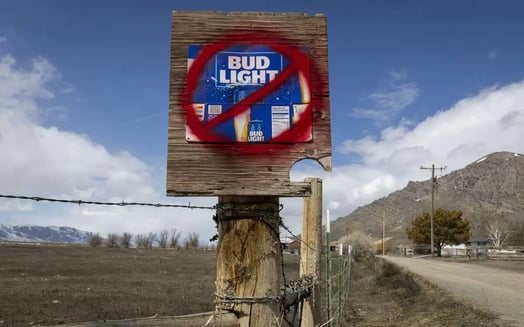When news breaks, the typical brain goes many places: What happened? Who’s impacted? How does this change my world?

Absent from that stewing mind: Hm, what does Taco Bell think about this?
Yet the current news cycle wouldn’t be complete without public statements from nearly every corporation under the sun, unleashing a cavalcade of condemnations, what-we-stand-fors, and deep sympathies.
As workplace tensions roil over corporate responses to the Israel-Hamas war, the question being asked anew: Exactly how necessary are those statements?
There’s no winning strategy here
Let’s acknowledge that executives are in an impossible spot here — there is rarely any victory found in taking a stand, only relief from dodging a disastrous loss.
Every scenario is its own unique parade through a field of land mine:
- No two cultural moments can be approached with the same brand-response playbook: For instance, the George Floyd protests and the overturning of Roe v. Wade delivered entirely different complexities.
- Penning a neutral, universally satisfying statement is virtually impossible.
- Earnest statements can be perceived as performative; inauthentic statements can be their own PR disaster; either can quickly prompt internal discord among employees.
And the price for stepping in it can be high: 22% of Americans say they’ve boycotted a brand in the past year over corporate stances they don’t agree with, per decision intelligence company Morning Consult.
(Just ask Bud Light — its bottom line is still reeling from this summer’s boycott over its partnership with a transgender influencer.)
Is skipping a statement an option?
Perhaps, but the middle has also been unkind to brands, even the most unshakeable ones.
- Harvard University, for one, faced backlash for not making an immediate statement on the Israel-Hamas crisis.
It also may not be the company’s choice. Starbucks was drawn into a firestorm when an employee union tweeted in support of Palestinians last month, leading to 1k+ complaints, vandalism, and in-store protests.
So, what the hell do you do if you’re in charge of a company?
Panic? Cry? All options for sure. But most prudent: Try to understand your employee and consumer bases; preferences about corporate activism are rapidly shifting and vary on demographic lines (more on that in the story below).
And honestly? Start by acknowledging that you’re in a “damned if you do, damned if you don’t” scenario.
